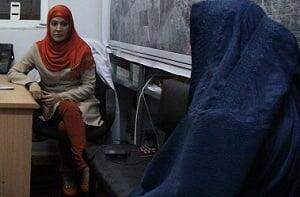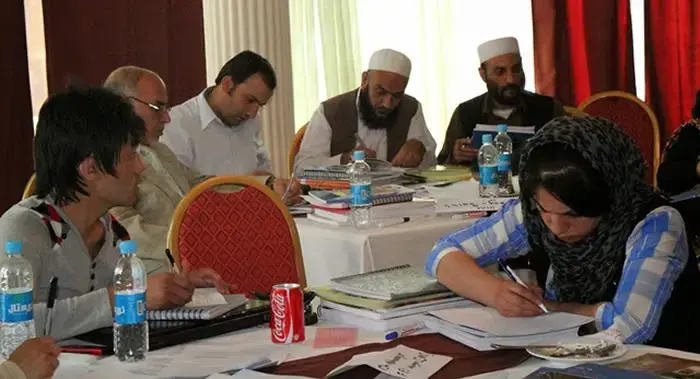It was late at night when her husband and her eldest daughter brought her to the hospital. Bibi Gul was in critical condition and the nurses rushed her to the emergency room not knowing the perpetrator is the husband himself.
When the nurses examined her they discovered bruises all over Bibi Gul's body. It was then when they realized she is a survivor of gender-based violence. Immediately they informed the counsellors of the Family Protection Centre (FPC) situated in Balkh Hospital in Mazar i Sharif. The counsellors rushed to the hospital and found Bibi Gul almost unconscious. The doctor informed Munira, one of the counsellors, that they found naswar, a moist powdered tobacco snuff, in her vagina.
The counsellors and the nurses at the hospital suspected the husband, but they didn't know for sure. "We managed to send the husband to the pharmacy to get medicines for his wife and we kept the daughter with us so that she could recall what happened that night", says Munira, one of the FPC counsellors. "In the meantime we updated the police."
Bibi Gul's daughter told the story to the counsellors. That night her father planned to kill her mother. He prepared everything in the basement of their house; a knife, ropes and plastic bags. He intoxicated her by putting naswar in her vagina. When Bibi Gul's condition worsened, her husband took her to the hospital. "I don't know why my husband changed his mind. All I know is that God saved me", recalls Bibi Gul later at the FPC.
Her husband got arrested immediately and after a trial he went to jail for six months. With the support of the Family Protection Centre, she could move to another house with her children. At the centre she tells that her husband was very abusive. He was accusing her of adultery and therefore he used to beat her up. "He used to take me to the basement when the kids went to bed and beat me until I was covered with blood. He would repeat this every night", she says.
Bibi Gul was 19 years old when she got engaged to her husband. It lasted seven years before she got married to him. Right after their engagement he got involved in criminal activities. He used to steal and loot people. "During one of his robberies he got badly injured. Ever since he was a very bad tempered man", tells Bibi Gul.
To support gender-based violence survivors and their families to know about their rights, to find shelter and to access health, counseling and legal services, the Ministry of Public Health, with the technical support of UNFPA, the United Nations Population Fund, UNFPA and with the funding support of the Government of Republic of Korea, Italian Development Cooperation and the Government of Canada, established the Family Protection Centres (FPC).
Family Protection Centre is a service hub located in hospital in which victim is safe, less restricted in mobility, not exposed to additional risk, providing psychosocial and trauma counseling, medical treatment, information on options of services, basic legal assistance, liaising with necessary services and referrals to legal actors such as the Family Response Unit of the Ministry of Interior Affairs or Department of Women's Affairs of Ministry of Women's Affairs.
The first Family Protection Centres were established in 2013 in Kabul and Nangarhar provinces. These were followed by further centres in Herat, Balkh, Bamiyan and Baghlan. This year alone, these facilities have registered over 1,900 cases of gender-based violence. Most of these cases involved physical violence, psychological violence, forced or early marriage, denial of resources and rape.
In the coming months another six centres are going to be established in the provinces of Daikundi, Jawzjan, Farah, Laghman, Parwan and Pansher with the financial support of the Government of the United Kingdom.





